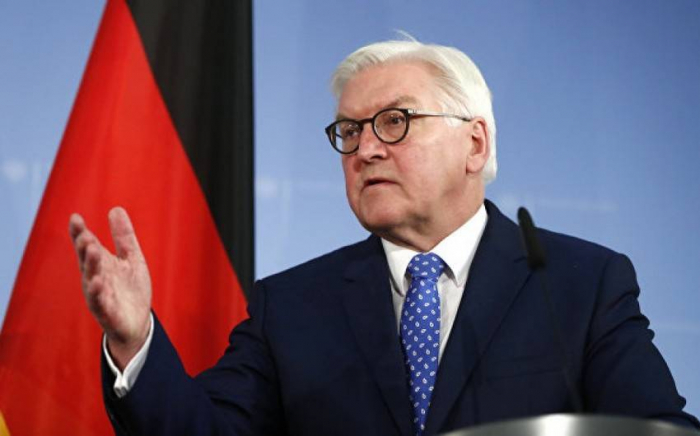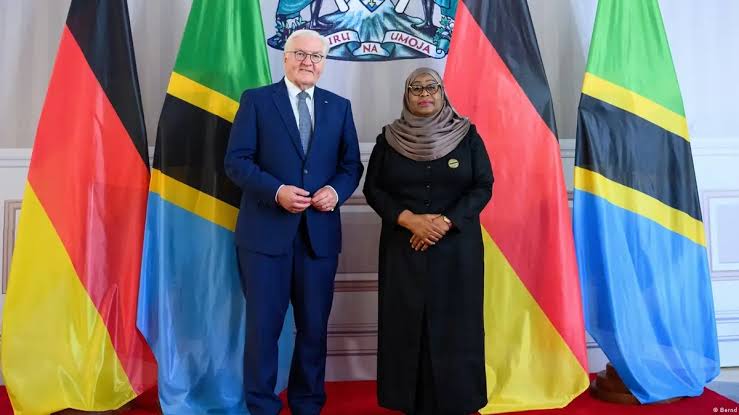
Faith Nyasuguta
On Wednesday, November 1st, Germany’s President, Frank-Walter Steinmeier, expressed a heartfelt apology for the atrocities committed during the colonial rule in Tanzania.
While visiting Songea, in southwestern Tanzania, President Steinmeier met with descendants of Chief Songea Mbano, a leader executed for his role in a revolt during the German East Africa era.
In his speech, President Steinmeier addressed the local community, stating, “My dear family of Songea, I mourn with you for Chief Songea and all the others who suffered under German colonial rule. As the President of Germany, I extend my sincere apologies for the wrongdoings of our ancestors here.”
He acknowledged Chief Songea Mbano as a “brave leader” in the rebellion and promised to work towards finding answers to the unanswered questions that have haunted the descendants.
As a gesture of respect and remembrance, President Steinmeier laid a rose at Chief Songea Mbano’s grave and a wreath at the mass grave of 66 other fighters who perished during the Maji Maji uprising, a rebellion that claimed the lives of up to 300,000 people between 1905 and 1907.
One significant aspect of this visit was President Steinmeier’s commitment to locating the remains of Chief Songea Mbano, which might have been brought back to Germany as part of historical collections. He acknowledged the challenge of identifying human remains but pledged to make every effort to find them.
This solemn occasion also brought to light the unresolved issue of seeking compensation from Germany for the people who were subjected to starvation, torture, and violence by German forces during colonial rule. In 2017, the Tanzanian government contemplated legal action to secure reparations.
Germany’s agreement with Namibia in 2021, recognizing colonial-era massacres as genocide and pledging funding, serves as a precedent. However, the agreement has not yet been formally ratified, and some groups representing the Herero and Nama people remain dissatisfied with the terms.
President Steinmeier’s visit to Tanzania marks a significant step in acknowledging the painful history of colonialism and striving for reconciliation and understanding between nations.

Germany’s colonial presence in Tanzania began in the late 19th century when it established German East Africa. This colony covered what is now Tanzania, Rwanda, and Burundi.
The German colonial rule in Tanzania was marked by various economic and social changes, as well as tensions with local populations. It ended after World War I when the colony was placed under British military occupation and later became a British mandate.
During their colonial rule, the Germans influenced the region in terms of infrastructure development, administration, and the cultivation of cash crops. However, their rule was also marked by conflicts with local communities and resistance movements, including the Maji Maji Rebellion from 1905 to 1907, in which a significant number of lives were lost.
It is essential to recognize that colonialism had a lasting impact on the region’s history and continues to shape modern-day Tanzania. The legacy of colonialism has influenced the cultural, political, and economic dynamics of the country.
RELATED:




